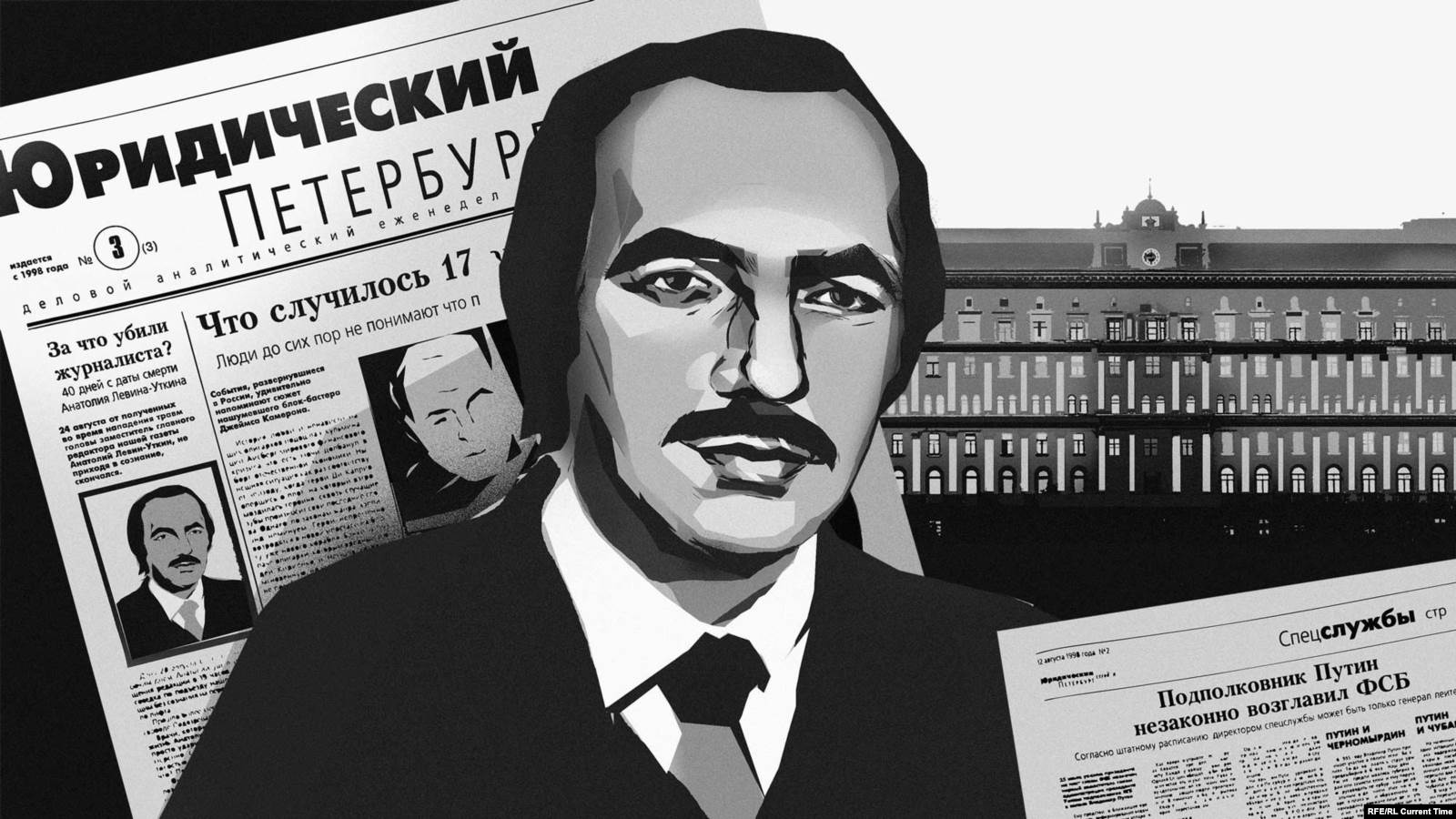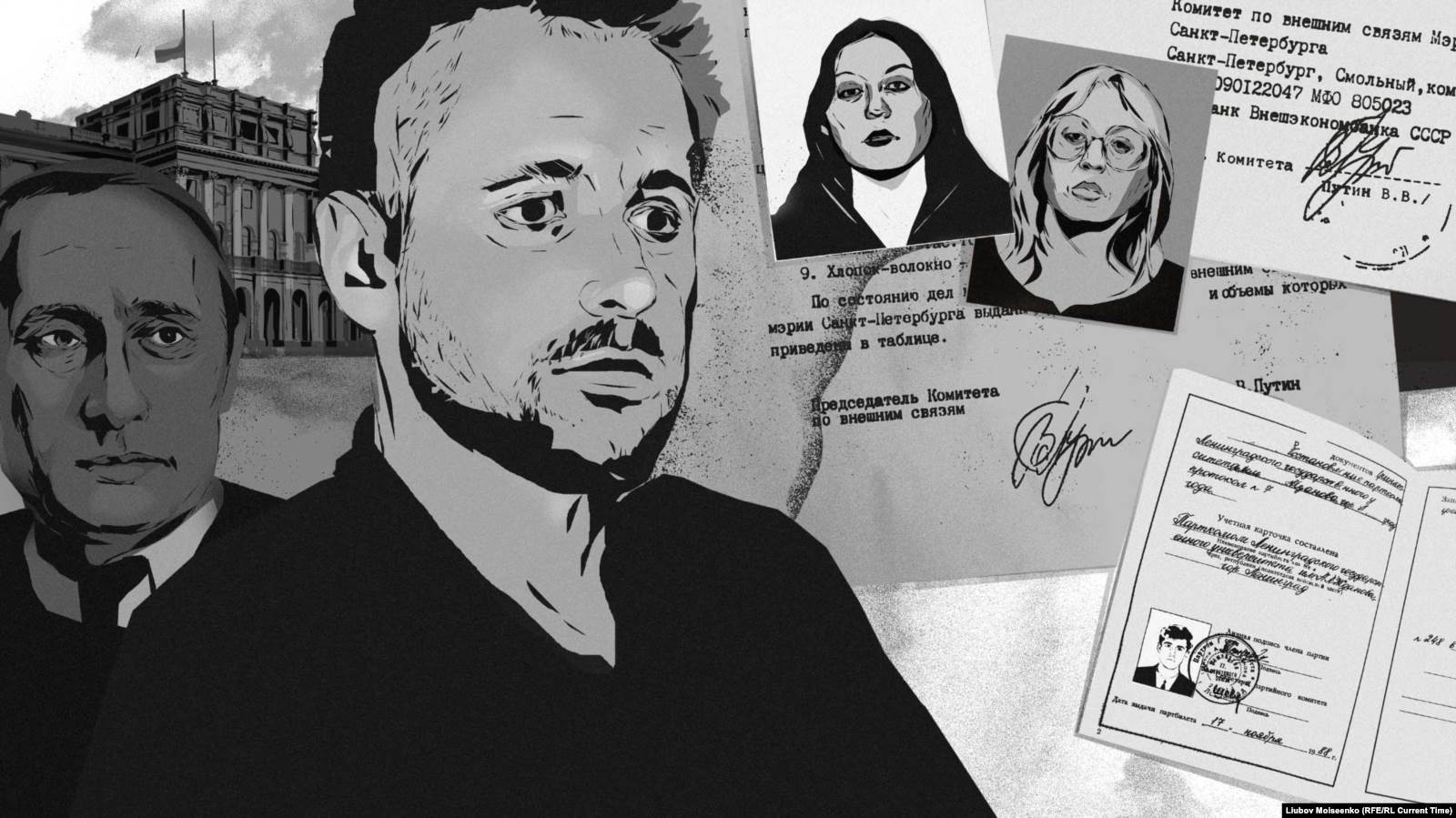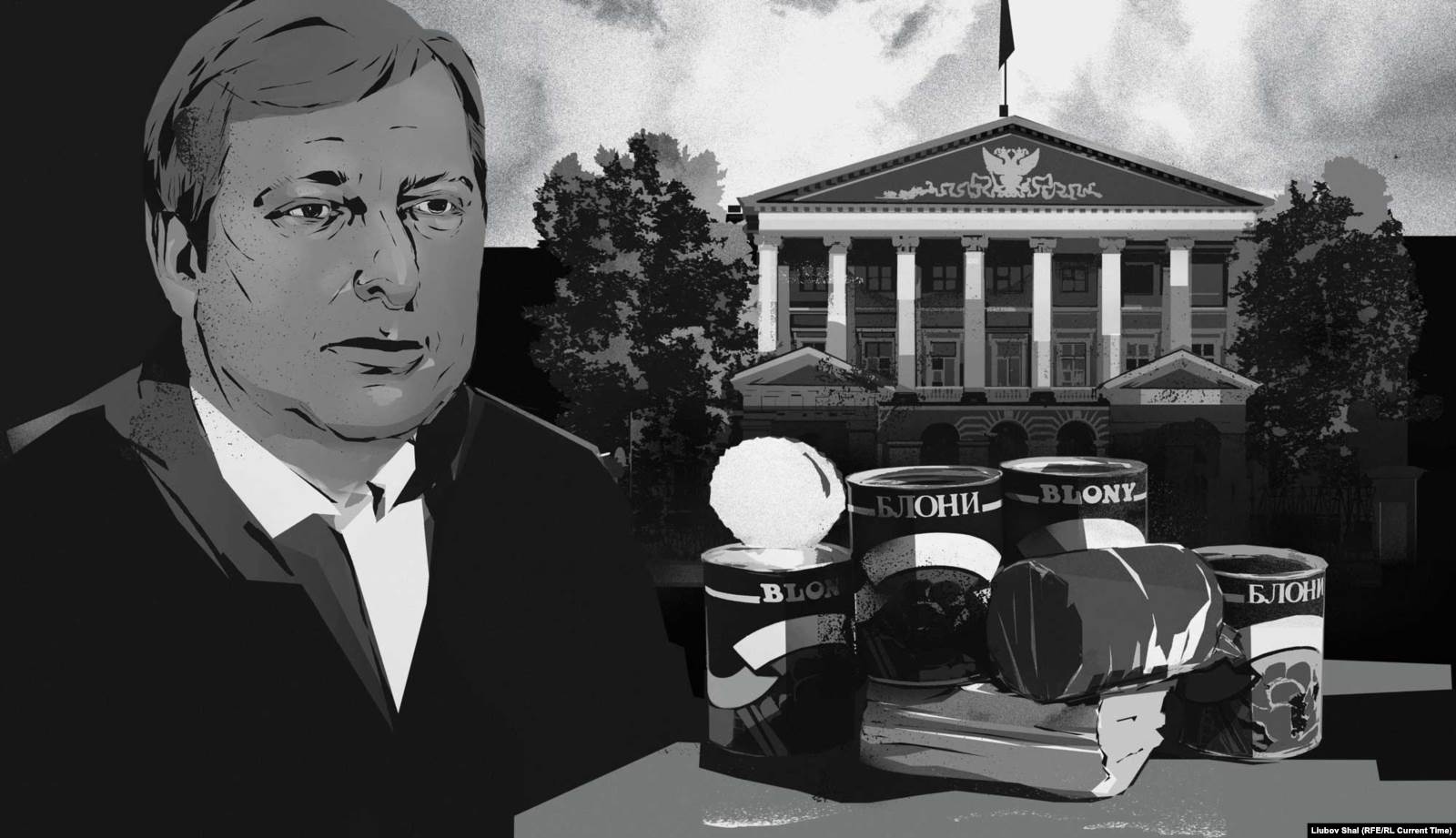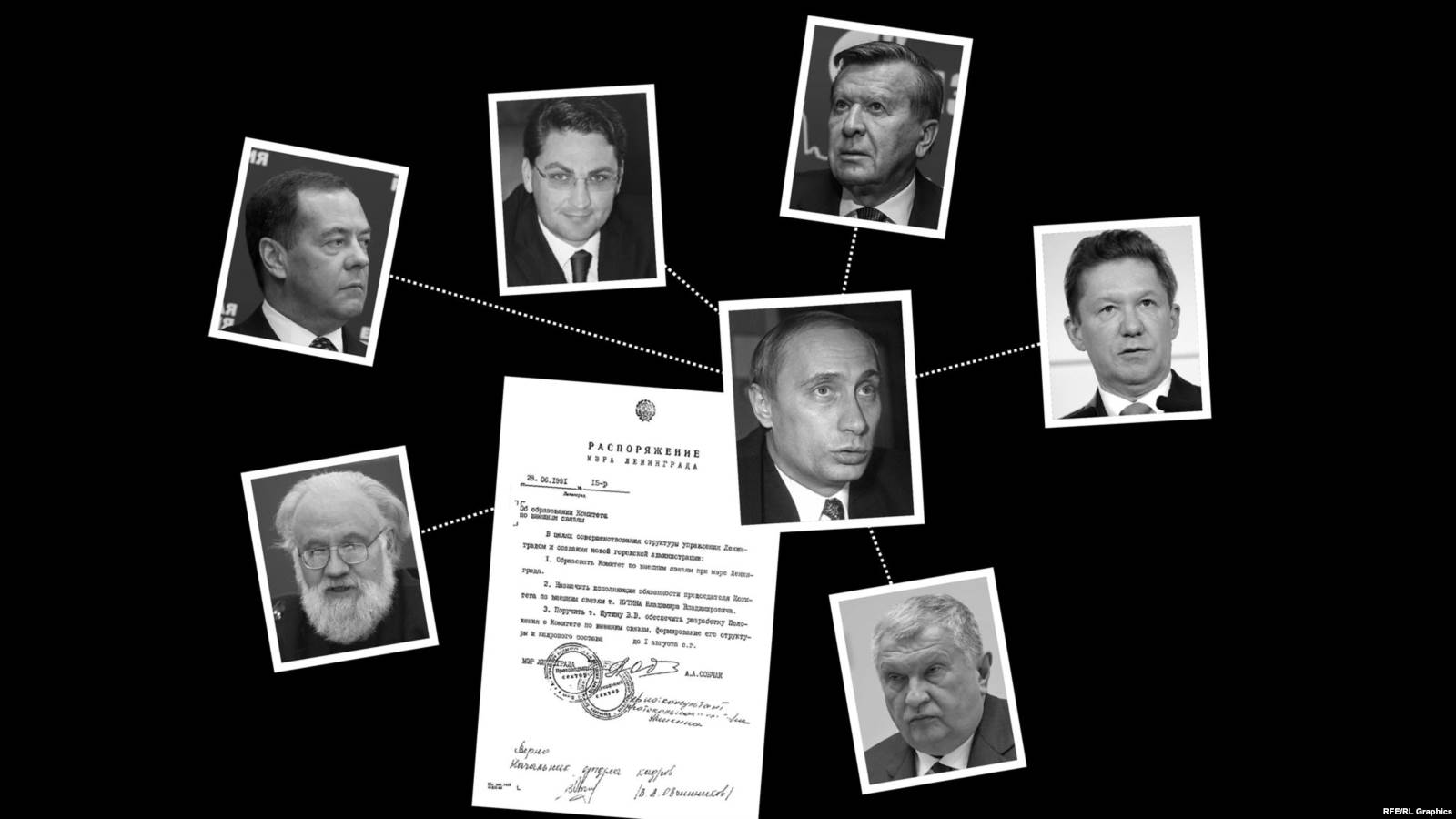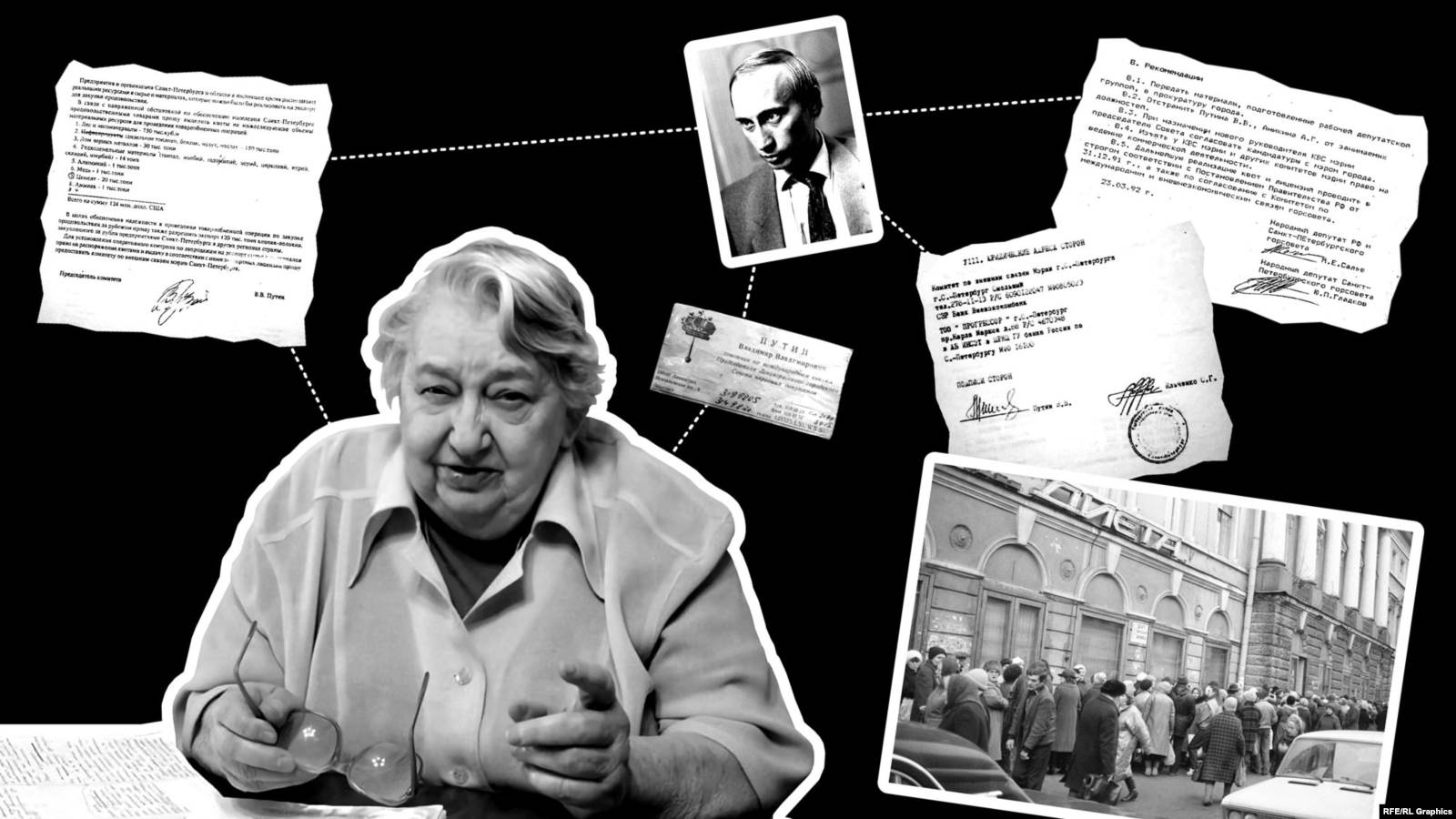When the Soviet Union collapsed three decades ago, an unremarkable 39-year-old retired KGB officer named Vladimir Putin found himself at the helm of a municipal committee in Leningrad, now known by its original name, St. Petersburg.
It was a humble launching pad for the man who would go on to rule Russia for more than two decades and, after engineering a political system that could keep him in power for life and ordering an unprovoked war against Ukraine, is now escalating the kind of isolationism and political repressions reminiscent of the Soviet era in which he cut his intelligence teeth.
During his first presidential election campaign, in 2000, Putin pledged to turn a chaotic country plagued by corruption into a just and orderly “dictatorship of the law.” But his own long rule has been marred by allegations of graft from the start -- and even before the start.
Within a year of Putin’s appointment as head of Leningrad’s External Relations Committee by his political mentor, Mayor Anatoly Sobchak, he was already mired in suspicions of corruption. A liberal city lawmaker named Marina Salye led an inquiry calling for Putin’s removal over the committee’s barter scheme, which earned millions for fly-by-night firms that vanished with the money.
That affair, which Putin survived after it was swept aside by the authorities, has been well documented by journalists and scholars. But a new investigative series by Current Time and RFE/RL’s Russian Service shines light on long-forgotten corruption scandals and scams that swirled around Putin’s committee and associates during his embryonic political career in St. Petersburg, which at the time teemed with organized crime groups operating in lockstep with law enforcement and government officials.
The series, based on months of combing through court, police, and newspaper archives, as well as interviews with direct participants in these schemes, reveals fresh details about what was billed at the time as Russia’s largest-ever seizure of cocaine -- allegedly destined for the St. Petersburg mayor’s office -- as well as the planned theft of millions of dollars with the help of a Putin subordinate and a company that was essentially a subsidiary of the future Russian president’s committee.
It also reveals the direct involvement of Putin’s committee in a company seeking to peddle a fictitious chemical compound known as “red mercury” to foreign buyers interested in its supposed fantastical properties, including nuclear applications.
As part of this project, Current Time and RFE/RL’s Russian Service will also release an archive of documents detailing the work of Putin’s committee that has never before been published online, as well as news articles from the time related to the future Russian leader. These articles include a posthumous tribute to a journalist who wrote a detailed report about Putin’s KGB past -- and whose murder days after the story came out has never been solved.

